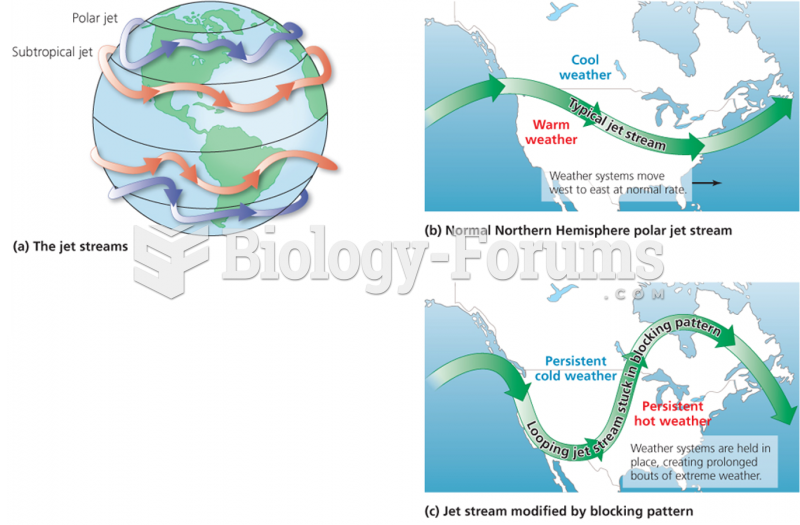|
|
|
It is difficult to obtain enough calcium without consuming milk or other dairy foods.
A seasonal flu vaccine is the best way to reduce the chances you will get seasonal influenza and spread it to others.
After a vasectomy, it takes about 12 ejaculations to clear out sperm that were already beyond the blocked area.
The modern decimal position system was the invention of the Hindus (around 800 AD), involving the placing of numerals to indicate their value (units, tens, hundreds, and so on).
As the western states of America were settled, pioneers often had to drink rancid water from ponds and other sources. This often resulted in chronic diarrhea, causing many cases of dehydration and death that could have been avoided if clean water had been available.






